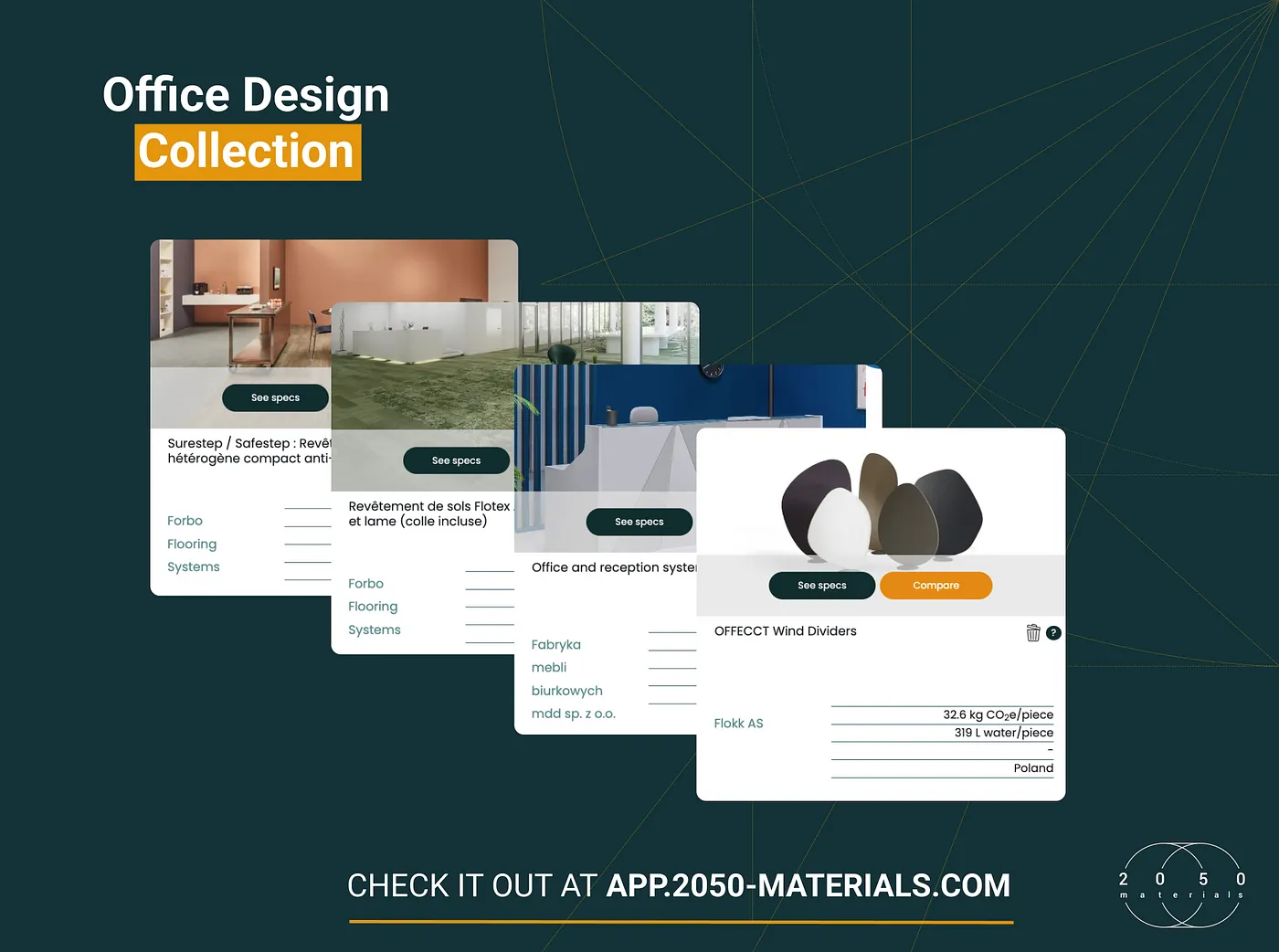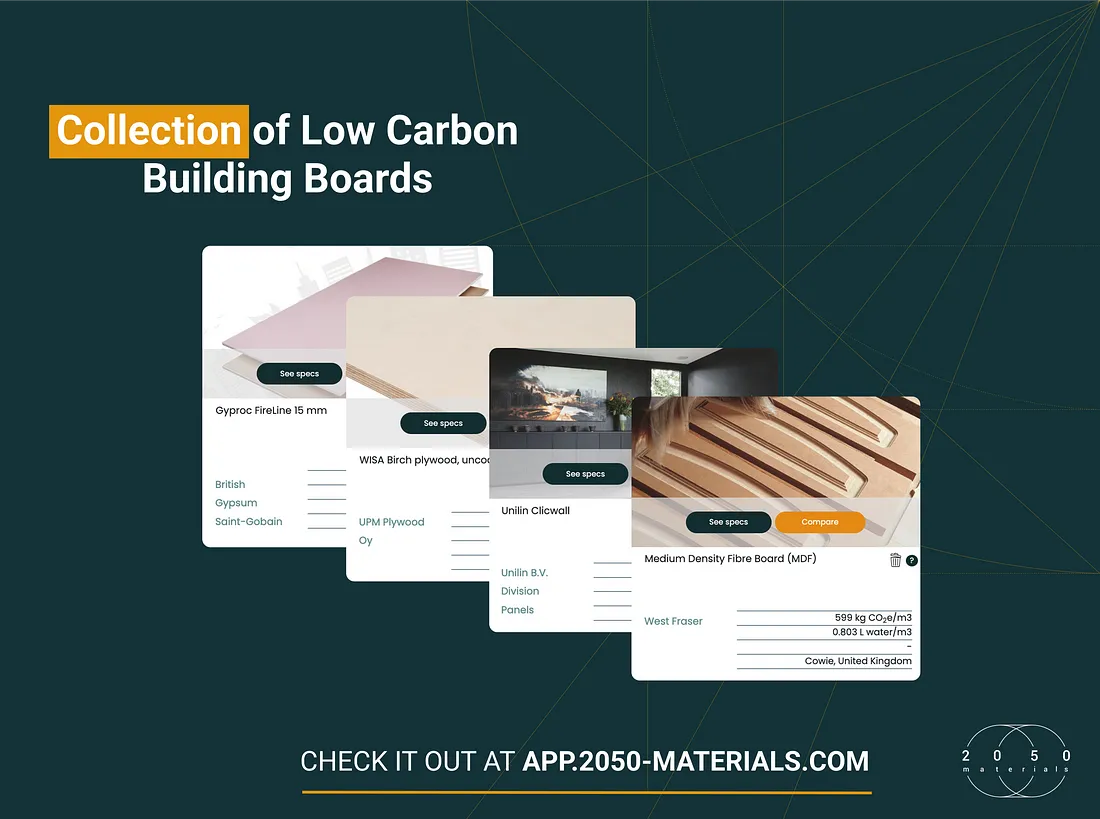Top 10 Foundation Solutions for Modern Construction

Explore the full collection of foundation solutions curated by our team
Foundation solutions ensure the stability and integrity of buildings and are important elements in construction. As the construction industry shifts toward sustainable practices, innovative low-carbon foundation products are leading the way.
This article highlights ten standout foundation solutions curated in an exclusive collection, each offering exceptional sustainability performance. With detailed product overviews, sustainability insights, advantages, and use cases.
1. Rammed earth brown by BC Materials

Overview
Rammed earth by BC Materials is a gravelly earth mixture designed for rammed earth construction, supplied wet and ready to use in 1000kg big-bags. Ideal for creating monolithic walls and slabs, it can be left exposed for a natural finish.
Sustainability Performance
- Composed of natural gravelly earth, a renewable and abundant resource.
- Requires minimal processing, reducing embodied carbon.
- Eliminates the need for additional finishes, reducing overall material use.
Advantages
- Streamlines construction processes with ready-to-use packaging.
- Enhances thermal insulation and mass for energy-efficient buildings.
- Durable and long-lasting for low-maintenance performance.
Use Cases
- Residential and commercial walls emphasizing natural materials.
- Energy-efficient architectural designs where thermal mass is prioritized.
- Construction projects seeking a minimalist, natural aesthetic.
2. Prefabricated Homogeneous Wall Elements Biobetong II by Heidelberg Materials Precast Abetong

Overview
Biobetong II by Heidelberg Materials Precast Abetong is a prefabricated homogeneous concrete wall element incorporating aggregate, cement, and blast furnace slag, with minimal reliance on fossil-based materials.
Sustainability Performance
- Utilizes blast furnace slag, reducing traditional cement-related emissions.
- Prefabrication optimizes material use and minimizes onsite waste.
- EPD certification confirms sustainability performance.
Advantages
- High-strength, durable design reduces repair and replacement needs.
- Prefabricated elements ensure faster construction timelines.
- Reduces reliance on virgin materials through innovative composition.
Use Cases
- Large-scale residential and commercial projects prioritizing durability.
- Prefabricated structures requiring rapid deployment.
- Urban developments with strict carbon targets.
3. Retaining Wall Gray by Aaltvedt Betong AS

Overview
Aaltvedt Betong AS’s precast retaining wall is designed for stability and durability, making it suitable for diverse structural applications.
Sustainability Performance
- Precast concrete production minimizes resource waste.
- EPD-certified to validate low-carbon performance.
Advantages
- Robust design ensures resistance to weather and heavy loads.
- Easy installation reduces onsite time and labor.
- Long lifespan reduces material replacement frequency.
Use Cases
- Landscaping projects requiring secure retaining structures.
- Infrastructure projects such as road embankments and water management.
- Urban developments where durable retaining walls are essential.
4. Pillar Block by Asak Miljøstein AS

Overview
The Pillar Block by Asak Miljøstein AS is a versatile concrete foundation solution available in varied thicknesses for different construction applications.
Sustainability Performance
- Efficient use of materials verified by an EPD.
- Combines high performance with reduced carbon emissions during production.
Advantages
- Customizable dimensions allow flexibility across multiple applications.
- Durable material composition ensures longevity and strength.
- Suitable for projects requiring quick installation and setup.
Use Cases
- Foundations for industrial and commercial structures.
- Paving projects requiring structural stability.
- Retaining walls in residential and public spaces.
5. Concrete Piles 270 4x16 by Skanska Industrial Solutions AB

Overview
Skanska’s Concrete Piles are designed to reinforce soil for construction foundations, available in sections up to 14 meters in length.
Sustainability Performance
- Precast production reduces material waste and supports efficient use.
- EPD-certified, ensuring adherence to sustainability standards.
Advantages
- High durability supports structural integrity in challenging soil conditions.
- Efficient design allows for transportation and on-site assembly.
- Long lifespan reduces the need for frequent replacement.
Use Cases
- Foundations for high-rise commercial and residential buildings.
- Infrastructure projects like bridges and highways.
- Soil reinforcement in geotechnically challenging environments.
6. EcoSheetPile™ Plus by ArcelorMittal Commercial RPS

Overview
EcoSheetPile™ Plus by ArcelorMittal Commercial RPS S.à r.l. is a steel piling product made using 100% recycled steel in an electric arc furnace process, designed for robust and durable construction.
Sustainability Performance
- Made from 100% recycled steel, promoting a circular economy.
- Reusable and recyclable at the end of its lifecycle, reducing waste.
- Energy-efficient production with minimal environmental footprint.
Advantages
- Versatile design options (Z-shaped, U-shaped, straight-web, and H-shaped).
- Durable for long-term use across multiple projects.
- Reduces reliance on virgin materials through recycled content.
Use Cases
- Marine and coastal reinforcement projects.
- Urban infrastructure requiring strong piling solutions.
- Temporary or permanent piling for industrial sites.
7. Prefabrikert Repos Element by Elementsør AS

Overview
Prefabrikert Repos Element by Elementsør AS is a concrete stair component designed for quick installation and manufactured with consistent quality at Elementsør’s factory in Norway.
Sustainability Performance
- Reduces material waste through precise factory production.
- EPD-certified, ensuring compliance with environmental standards.
Advantages
- Simplifies construction with prefabricated, ready-to-install components.
- Durable and long-lasting for structural applications.
- Reduces onsite labor and construction waste.
Use Cases
- Commercial and residential stairwells requiring durable components.
- Infrastructure projects requiring reliable concrete solutions.
- Low carbon building designs focusing on modular construction.
8. Concrete P280 Soft Pile ECOPact Max by Aggregate Industries (Concrete) UK

Overview
The ECOPact Max concrete mix by Aggregate Industries is designed to offer substantial CO2 savings while maintaining high performance. Manufactured at the Denham plant, it utilizes carbon-reduction technology.
Sustainability Performance
- Incorporates GGBS (Ground Granulated Blast-furnace Slag) to significantly reduce carbon emissions.
- EPD and ISO 9001 certified for transparency and sustainability.
Advantages
- High-performance mix suitable for various applications.
- Offers substantial embodied carbon reductions.
Use Cases
- Foundations for commercial, residential, and industrial projects.
- Low-carbon alternatives for urban development.
- Infrastructure requiring durable concrete.
9. GEN3 CIIIA Ready Mix Concrete by Hanson UK

Overview
Hanson UK’s GEN3 CIIIA Ready Mix Concrete is a versatile solution for domestic and commercial applications, offering exceptional durability and flexibility.
Sustainability Performance
- Produced at 167 facilities, ensuring consistent quality and sustainability practices.
- EPD-certified to verify environmental compliance and carbon reductions.
Advantages
- High compressive strength for demanding structural applications.
- Consistent quality across facilities ensures reliability.
- Multi-purpose mix suitable for a variety of projects.
Use Cases
- Domestic flooring, patios, and paths.
- Commercial foundations requiring robust support.
- Infrastructure projects demanding flexible concrete solutions.
10. Recycled Bricks by Genbrugssten

Overview
Genbrugssten’s recycled bricks are carefully sorted by color and consist of both cellular and solid bricks. Available in red, yellow, or patinated finishes, they are ideal for low carbon construction projects.
Sustainability Performance
- Repurposed from existing buildings, reducing waste and resource extraction.
- Significantly lower embodied carbon compared to newly manufactured bricks.
- Promotes circular economy principles.
Advantages
- Adds character and a vintage aesthetic to designs.
- Durable and robust for long-term use.
- Reduces environmental impact through reuse of existing materials.
Use Cases
- Restoration projects requiring authentic materials.
- Decorative elements in residential and commercial designs.
- Suitable for low carbon architectural applications prioritizing material reuse.
Conclusion
These ten foundation solutions illustrate the strides being made toward more sustainable construction practices. Whether it’s the innovative use of recycled steel in EcoSheetPile™ Plus, the reduced carbon mix of ECOPact Max, or the natural aesthetics of KASTAR, each product offers unique advantages. Incorporating these solutions into projects allows builders to align with environmental goals while ensuring high-quality and durable results.
Related articles

Climate-Resilient Materials for the Built Environment: A Data-Centred Prime
As climate volatility intensifies, resilience metrics are fast becoming as critical as carbon data in material selection. This article outlines why adaptation is now a design imperative, how materials can be evaluated through a systems lens, and what KPIs project teams should demand. From self-healing concrete to fire-rated façades, we present a structured taxonomy of resilient materials, explain how to embed this intelligence into digital design workflows, and propose next steps for specification, benchmarking, and procurement.
Read more
The Most Interesting Low Carbon Products in Office Design
In this article and collection, we highlight 11 outstanding products that contribute to a lower carbon footprint in office design.
Read more
Top Low Carbon Building Boards: Performance, Benefits, and Use Cases
The building boards highlighted in this article and collection showcase low-carbon innovation in modern construction.
Read more